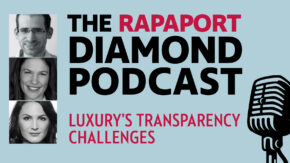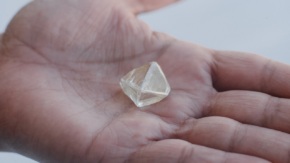When it comes to the ethical-business space, certification body B Lab’s B Corp scheme is making an impact. Approximately 37% of US adults are now familiar with its mark, according to the group. Like Fairtrade, which boasts a 61% recognition rate, B Corp covers many product categories, including jewelry.
Its stamp of approval has always been reassuringly difficult to achieve and demanded continuous improvement from businesses. Now, it’s undergoing a review of its standards — a move that will likely make it tougher than ever to qualify for certification. This is especially true for jewelers, since B Lab added the sector to a list of controversial industries last year.
B Lab first announced the general standards review in December 2020, releasing its preliminary findings in May of last year. As of press time, the new standards were going through a second round of consultation, which was due to end March 26.
“We don’t know what the final version will look like yet, [but] there will be a move away from the current framework, which allows companies flexibility in how they achieve the 80-point score needed to certify,” explains Victoria Waugh, cofounder of V&V Sustainability Consultancy, which helps brands apply for B Corp status.
“Instead, businesses will have to meet specific requirements across various impact topics. For example, currently, jewelry brands using the framework tend to earn most [of their] points by implementing responsible sourcing practices. Going forward, they may have to work harder on, for example, environmental impact or community engagement to achieve a more rounded score.”
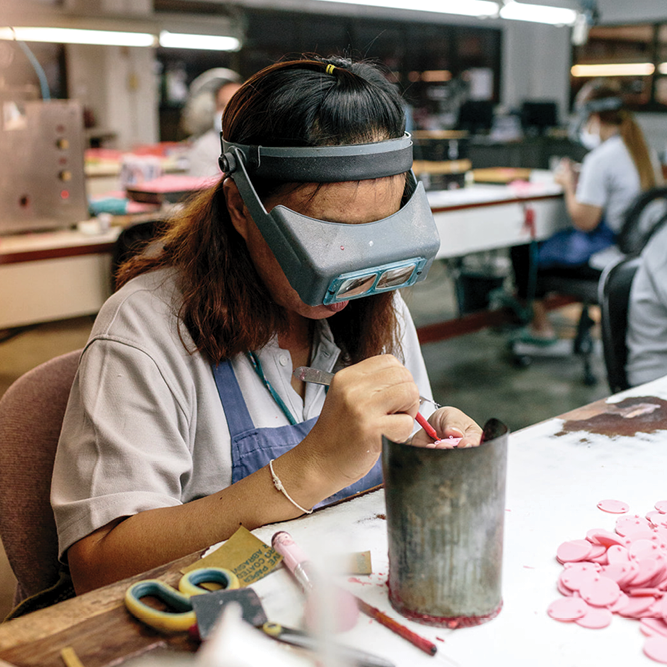
(Boma Jewelry)
Calculating the risks
In addition to meeting the general updated guidelines, jewelers will soon have to pass an advanced set of risk standards specifically for the industry, now that it falls under the “controversial” label. B Lab describes its risk assessment process as “complex and time-intensive.”
The review has four possible outcomes for jewelry companies: no further action needed; increased disclosure required; remediation and increased disclosure required; or ineligibility for B Corp certification.
“In cases of industries considered controversial, there is a natural tension between the inclination to exclude these companies from eligibility and the need for leadership within the industry,” B Lab explained in a recent statement.
“While B Lab and its Standards Advisory Council may determine that an industry as a whole is ineligible for certification, we also recognize that within controversial industries, it may be possible for companies to meaningfully manage potentially negative impacts or practices. In these circumstances, we must distinguish between good and bad actors by using rigorous standards of verified social and environmental performance, legal accountability, and public transparency.”
The body has not yet scheduled the risk assessment process for the jewelry industry, so there is no time frame or guidance as yet, but Waugh expects to see “additional supply-chain due-diligence requirements in relation to the sourcing of precious metals and stones” as a result.
“I welcome these improvements, as currently, the standard is not robust enough in this area,” she states.

(Lover’s Tempo)
Specific needs
Companies that are already B Corp-certified will be given time to work up to the new guidelines.
“From what I have read about the new B Corp standards so far, they are definitely highlighting the importance of traceability within the supply chain, which has proven to be the trickiest factor for us,” says Leslie Hoolaeff, cofounder of B Corp-certified jewelry brand Lover’s Tempo.
Based in Vancouver, Canada, her company has retail clients across the US. “I don’t know the specifics of how the recertification process will evaluate [the traceability issue], but I anticipate that being the largest hurdle for us when it comes time to recertify. That being said, this is what B Corp is all about — pushing businesses to hold themselves to a higher standard and continually improve.”
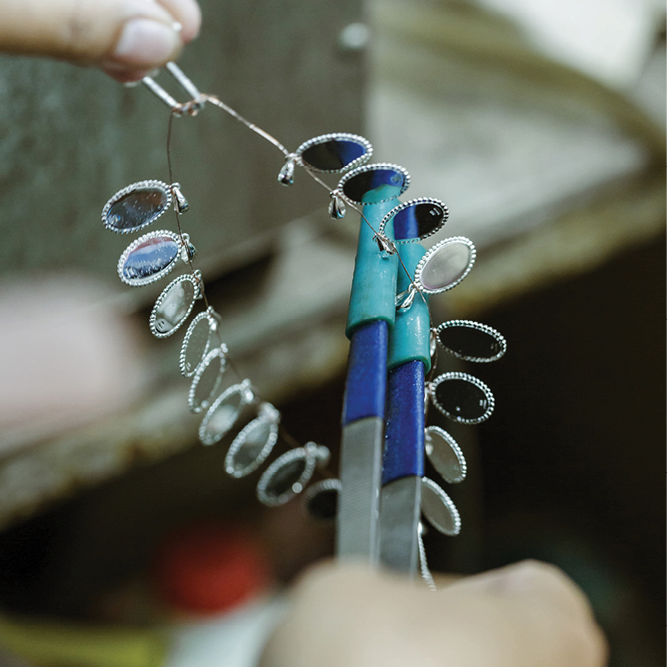
(Boma Jewelry)
For some businesses, the complexity of the jewelry supply chain makes it more practical to seek certification elsewhere. Suzanne Vetillart, chief executive of Boma Jewelry, has already achieved B Corp status for her Seattle-based wholesale brand and wished to do the same for Boma’s manufacturing division, Loytee, which produces jewelry for other brands in Thailand. However, she has since decided against it, opting for Responsible Jewellery Council (RJC) certification instead.
“The wonderful thing about B Corp is that it is a standard for all industries, but for real issues and concerns for jewelry, there may be big gaps in how the certification evaluates,” she says. “From our research, RJC is more jewelry-specific…when it comes to material sourcing like mining, and safety of materials and workers from the production process.”
The RJC’s alignment with the UN’s Sustainable Development Goals (SDGs) makes it easy to communicate the standards to end consumers, she adds.

Worth waiting for?
For jewelers hoping to apply for B Corp status, or those in the midst of doing so, the review process presents a new impediment. It can take years to bring a company in line with B Corp standards as it is, and companies in industries the body deems controversial can’t even proceed with certification until B Lab finishes developing the risk standards.
This puts new applications from jewelers on hold indefinitely.
Ellis Mhairi Cameron, who had dedicated months to her B Corp application, is one such jeweler — though she still believes in the cause and intends to continue pursuing certification.
“When I learned about potential changes to the application process, it initially left me disheartened,” she recalls. “But I realized that [setting] stricter measures for B Corp was a positive thing, as it meant they were making sure that the process was as thorough as possible, so clients can be confident that the B Corp certification stands for something really important.”
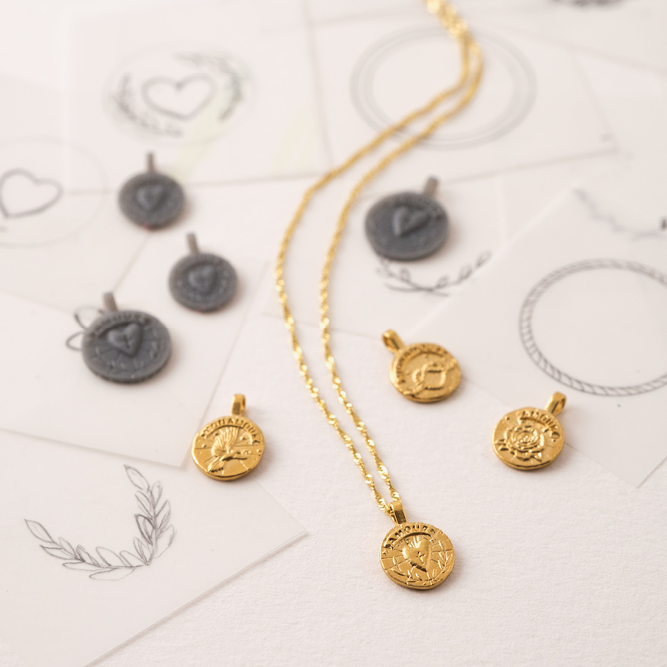
Main image: Suzanne Vetillart, chief executive of Boma Jewelry, with her family. (Boma Jewelry)
This article is from the March-April 2024 issue of Rapaport Magazine. View other articles here.
Stay up to date by signing up for our diamond and jewelry industry news and analysis.

